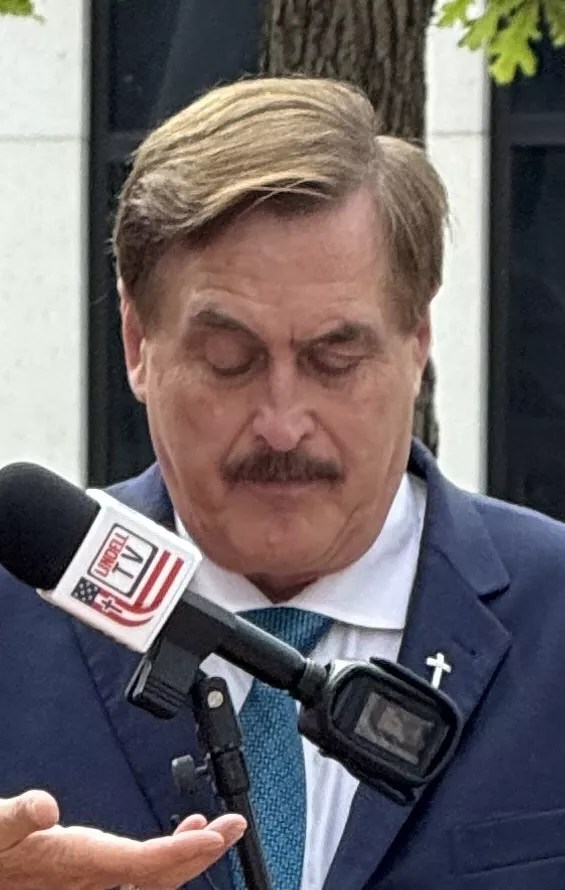
Brendan Joel Kelley

Audio By Carbonatix
The defamation lawsuit filed by former Dominion Voting Systems executive Eric Coomer against MyPillow CEO Mike Lindell and two of his companies was decided nearly a month ago, when the jury decided against Lindell in a handful of instances where Coomer’s attorneys say Lindell blamed Coomer for election fraud in the 2020 presidential contest.
But on Monday, July 14, Lindell’s attorneys Chris Kachouroff and Jennifer T. DeMaster – recently fined by Judge Nina Y. Wang for submitting an error-riddled motion authored by AI – submitted a motion challenging the outcome.
The document asks Judge Wang to determine that FrankSpeech, Lindell’s previous video streaming platform, should be immune to this litigation, arguing the jury’s award of economic loss to Coomer was unlawful because Coomer’s reputation was already “destroyed.” Lindell’s attorneys also ask that he and FrankSpeech not be held liable for defamation, as the jury decided he was not reckless.
Coomer sued Lindell, FrankSpeech, and MyPillow for defamation for statements made in ten instances, six by Lindell and four statements broadcast on FrankSpeech by others, including star witness Joe Oltmann, who allegaed that he’d infiltrated a September 2020 “antifa” zoom call and heard Coomer say he’d “made fucking sure” that Trump would lose the presidential election is at the heart of this lawsuit and others filed by Coomer. Oltmann is a defendant in a separate defamation case to be heard next year. Oltmann is currently being sanctioned $1,000 per day for walking out of a deposition in that case.
Jurors found FrankSpeech liable for two statements Lindell made and one statement by election denier David Clements, who appeared at Lindell’s Cyber Symposium and called Coomer “the man that pulled the trigger” in the election. In the new motion filed Monday, Lindell’s attorneys argue that FrankSpeech is protected by Section 230 of the Communications Decency Act, which says that a platform is immune from liability arising from what users post on it (i.e., Facebook can’t be held responsible for drug deals or sex trafficking by users on its site).
Lindell’s lawyers argue further that Lindell was a guest on a show produced by another company when he made the two statements, and FrankSpeech happened to air that show, but FrankSpeech is not liable for defamation that occurred on the show since it was produced by a third party.
In both the Lindell and FrankSpeech verdicts, jurors found them liable for economic damages suffered by Coomer; Lindell’s attorneys would like the judge to strike those findings as well, arguing that Coomer’s reputation was already destroyed by the time Lindell made his statements in 2021.
Lindell’s attorneys also point to a question in the jury’s verdict form that asked, “Do you find, beyond a reasonable doubt, that Defendant Lindell acted in a fraudulent, malicious, or willful and wanton manner in causing the Plaintiff’s damages?” The jurors answered “No” to this question, which Lindell’s attorneys assert means “Lindell cannot be held liable for defamation” for the two statements where the jury found Lindell to have committed defamation per se.
On the FrankSpeech verdict form, jurors answered “Yes” to the same question about fraud and malice. But Lindell’s lawyers argue that malice was not proven FrankSpeech since the jury found Lindell did not act with recklessness.
The motion is a last-gasp attempt to overturn the Lindell jury’s decision. We’ll see if Judge Wang buys the arguments.